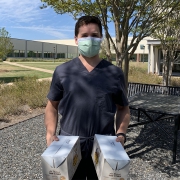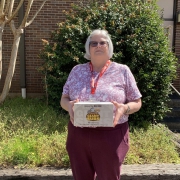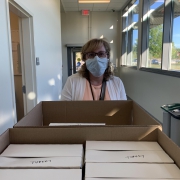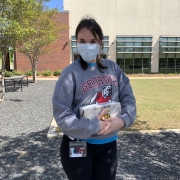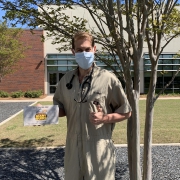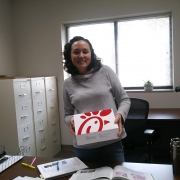The University of Georgia Foundation approved changes in board positions during its June 11-12 annual meeting, which was held virtually. The changes took effect July 1.
The UGA Foundation welcomed 12 new trustees and accorded six trustees emeritus status. The new members will join current trustees to comprise a 50-member board.
The board voted unanimously to elect the following individuals to the board:
James G. “Guyton” Cochran, of Carrollton, is the CFO and executive vice president at Southwire Company. He earned his bachelor’s degree in accounting from UGA in 1988 and a master’s degree in business administration from Georgia State University in 1995.
James L. “Jim” Dinkins, of Atlanta, is the president of Coca-Cola North America. Prior to his appointment, he was president of the Minute Maid Business Unit. He earned a bachelor’s degree in management from UGA in 1984 and an MBA from Emory University in 1992.
Keith Kelly, of Newborn, is the president and CEO of Kelly Products. He earned his bachelor’s degree in agricultural economics from UGA in 1980.
Elizabeth Correll Richards, of Atlanta, is chairman and CEO of Quality Staffing of America Inc. She earned her bachelor’s degree in early childhood education and child psychology from The Ohio State University in 1992.
Jodi Selvey, of Atlanta, is the senior vice president for Colliers International. She earned her bachelor’s degree in agricultural economics from UGA in 1984.
John F. Schraudenbach, of Duluth, was a partner at Ernst & Young in Atlanta prior to retiring in June 2019. He previously served as chair of the Terry College of Business alumni board. He earned his bachelor’s degree in business from UGA in 1981 and a master’s degree in accounting from UGA in 1982.
Dorothy Barfield Sifford, of Nashville, Tennessee, is active in various local, national and international nonprofits, ministries, and educational initiatives and endeavors. She earned her bachelor’s degree in family and consumer sciences from UGA in 1994.
Kimberly L. “Kim” Stamper, of Alpharetta, is a retired marketing professional who earned her bachelor’s degree in marketing from UGA in 1989. She remains actively engaged in mentoring young women, philanthropy and volunteering in her community.
Earl Howard Young, of Atlanta, is the president of General Wholesale Beer Co., a multi-generational family business. He earned his bachelor’s degree in marketing from UGA in 1982.
Three advisory trustees were also elected to assist committees in defining and achieving the board’s strategic goals:
Natalie Schweers Coghill, of Augusta, is founder of The Gracestone Group and senior vice president for Synovus Securities Inc. She earned a bachelor’s degree in journalism from UGA in 1995 and a law degree from UGA in 1998.
Vernon “Trey” Googe III, of Atlanta, is the president and CEO of Yancey Bros. Co. He earned his bachelor’s degree in finance from UGA in 1991 and a law degree from UGA in 1994.
Rebecca B. “Becky” Winkler, of Charlotte, North Carolina, is founder and owner of Department 732c. She graduated summa cum laude from UGA in 1998, earning degrees in psychology and Chinese. She also earned a master’s degree and Ph.D. in industrial-organizational psychology from DePaul University in 2004.
The following individuals also will join the UGA Foundation Board of Trustees in ex-officio positions:
Asim Ahmed, the UGA Student Government Association president, succeeding Rachel Byers.
Savannah C. Hembree, the president of the UGA Staff Council, succeeding Marie Mize.
The UGA Foundation Board of Trustees accorded emeritus status to six trustees whose terms concluded on June 30: Kathryn L. Ash, Elizabeth W. “Betsy” Camp, Frank D. Foley III, Larry D. Thompson, Russell C. “Rusty” Lindner and Robert H. Stolz.
The complete UGA Foundation Board of Trustees is available at https://give.uga.edu/uga-foundation/trustees-and-committees/.
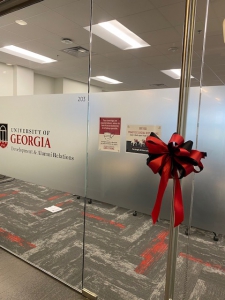 Innovation offers experiences for discovery. With extensive planning and partnerships, UGA’s Division of Development and Alumni Relations is discovering ways to expand and increase alumni participation and engagement.
Innovation offers experiences for discovery. With extensive planning and partnerships, UGA’s Division of Development and Alumni Relations is discovering ways to expand and increase alumni participation and engagement.
